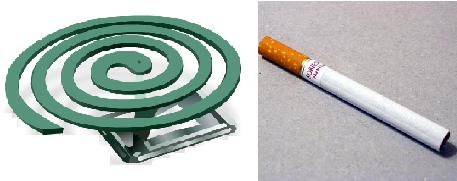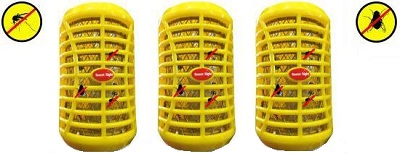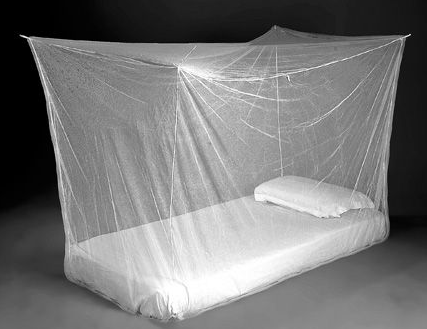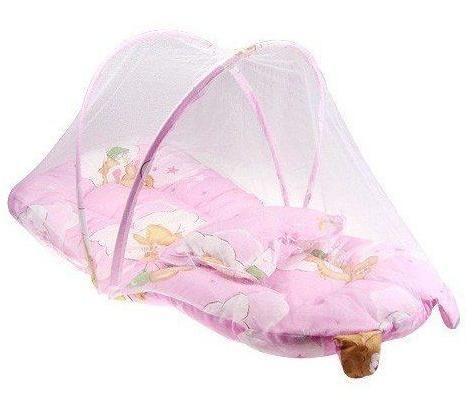ONE MOSQUITO COIL EQUALS 100 CIGARETTES
Smoke emitted from one mosquito repellent coil is equivalent to those of 100 cigarettes, thus causing harm to a large number of people. Not many people know about it, but the damage done to your health, especially lungs by one mosquito coil is equivalent to the damage done by 100 cigarettes. This was according to a recent study conducted in Malaysia.
Analysis:
This is a fact that everyone needs to be aware of. As the picture shows, the story is from an article published in Times of India. The article talks about the impact of using mosquito coils on health, especially in India where it is widely used.
The article is quoted by the director of Chest Research Foundation, Mr. Sandeep Salvi, who spoke at the conference 'Air Pollution and Our Health', which was organized by the Centre for Science and Environment (CSE) along with the Indian Council for Medical Research and the Indian Medical Association. He talks about a recent Malaysian study which insists that the damage done to lungs by one mosquito coil is equivalent to the damage done by 100 cigarettes. He further adds that while using mosquito coils, people are completely unaware of healthy risks of indoor air pollution like this.
Burning mosquito coils indoors is a common way to control mosquitoes effectively in homes, and are widely used in countries of Asia, Africa, and South America. However, the smoke that is emitted by these mosquito coils may contain pollutants that can of be serious health concern. Studies that tested this smoke have found significant amounts of volatile organic compounds in it, including carcinogens (cancer causing chemicals). Burning one mosquito coil released the same amount of particulate matter as burning 75-137 cigarettes would emit. The amount of formaldehyde (an irritating carcinogen that effects many processes inside body) emission from one mosquito coil was as high as that emitted when 51 cigarettes are burnt. You can find the complete details of the research in the reference section.
Therefore, it is quite evident that mosquito coil smoke poses both acute and chronic health risks, in the short and long term usage. So, one should avoid usage of these. Instead, to avoid and kill mosquitoes indoors, one should maintain hygienic atmosphere in and around home place and use natural and safe mosquito killers whenever necessary. Read the reference section for dealing with mosquitoes effectively.
References:
rediff NewsApp
Shocking - Burning One Mosquito Coil Is As Harmful As Smoking 100 CigarettesLast updated on: August 11, 2015 15:01 IST
The deaths caused by malaria and dengue have doubled up since 2012. According to a report in the leading daily, 8425 cases of dengue were reported from the state of Maharashtra. The rising number of dengue cases must not be taken lightly.

Here are a few smart ways to protect your loved ones from the mosquitoes that cause these deadly diseases like dengue, malaria etc.Did you know that the smoke emitted from one mosquito coil is equivalent to those of 100 cigarettes! It also causes respiratory problems, headache, nausea, vomiting etc.
Kill the mosquitoes
#1 Electric Insect Killer

Buy Mosquito Killer cum Night Lamp (Set of 3) @ Rs 295
Click here for a range of Insect Killers Under Rs 500
Simply plug it in a socket. Turn it on. The light of this insect killer attracts mosquitoes and kills it instantly. It is harmless and easy to use. It consumes very less power. Why use those sprays and chemicals in your room? Go for this smart electric insect killer.
#2 Mosquito Racket

Buy Superior Quality Mosquito Racket @ Rs 215
Click here for a range of Mosquito Rackets Under Rs 400
This mosquito racket kills mosquitoes, flies, bugs, gnats etc at the touch of a button. Simply move it in the direction where there are a lot of mosquitoes and it kills them instantly. Use this mosquito racket every night and ensure a good sleep. It is easy to use, lightweight and can be used both indoors and outdoors.
Some mosquitoes only bite during night time…
#3 Mosquito Net
Why use mosquito coils, sprays and repellents when you can simply use a mosquito net to keep mosquitoes at bay? Use a mosquito net as it protects you from mosquitoes irrespective of its size. A mosquito net is easily washable and can be stored when not in use. A mosquito net is made of superior quality mesh fabric which is extremely fine weave to keep out mosquitoes and other very small biting insects.
a. Mosquito nets for double bed – 8’ X 6’

Buy Mosquito Net for Double Bed @ Rs 263
Click here for a range of Mosquito Nets Under Rs 900
b. Mosquito nets for single bed – 6’ X 3’

Buy Mosquito Net for Single Bed @ Rs 295
Click here for a range of Mosquito Nets Under Rs 900
c. Baby Bedding Set with Mosquito Net

Buy Baby Bed with Mosquito Net @ Rs 699
Malaysian research on Mosquito coil emission
rediff NewsApp
Shocking - Burning One Mosquito Coil Is As Harmful As Smoking 100 CigarettesLast updated on: August 11, 2015 15:01 IST
The deaths caused by malaria and dengue have doubled up since 2012. According to a report in the leading daily, 8425 cases of dengue were reported from the state of Maharashtra. The rising number of dengue cases must not be taken lightly.

Here are a few smart ways to protect your loved ones from the mosquitoes that cause these deadly diseases like dengue, malaria etc.Did you know that the smoke emitted from one mosquito coil is equivalent to those of 100 cigarettes! It also causes respiratory problems, headache, nausea, vomiting etc.
Kill the mosquitoes
#1 Electric Insect Killer

Buy Mosquito Killer cum Night Lamp (Set of 3) @ Rs 295
Click here for a range of Insect Killers Under Rs 500
Simply plug it in a socket. Turn it on. The light of this insect killer attracts mosquitoes and kills it instantly. It is harmless and easy to use. It consumes very less power. Why use those sprays and chemicals in your room? Go for this smart electric insect killer.
#2 Mosquito Racket

Buy Superior Quality Mosquito Racket @ Rs 215
Click here for a range of Mosquito Rackets Under Rs 400
This mosquito racket kills mosquitoes, flies, bugs, gnats etc at the touch of a button. Simply move it in the direction where there are a lot of mosquitoes and it kills them instantly. Use this mosquito racket every night and ensure a good sleep. It is easy to use, lightweight and can be used both indoors and outdoors.
Some mosquitoes only bite during night time…
#3 Mosquito Net
Why use mosquito coils, sprays and repellents when you can simply use a mosquito net to keep mosquitoes at bay? Use a mosquito net as it protects you from mosquitoes irrespective of its size. A mosquito net is easily washable and can be stored when not in use. A mosquito net is made of superior quality mesh fabric which is extremely fine weave to keep out mosquitoes and other very small biting insects.
a. Mosquito nets for double bed – 8’ X 6’

Buy Mosquito Net for Double Bed @ Rs 263
Click here for a range of Mosquito Nets Under Rs 900
b. Mosquito nets for single bed – 6’ X 3’

Buy Mosquito Net for Single Bed @ Rs 295
Click here for a range of Mosquito Nets Under Rs 900
c. Baby Bedding Set with Mosquito Net

Buy Baby Bed with Mosquito Net @ Rs 699
Malaysian research on Mosquito coil emission
- Liu W, Zhang J, Hashim JH, Jalaludin J, Hashim Z, Goldstein BD 2003. Mosquito Coil Emissions and Health Implications. Environ Health Perspect 111:1454-1460. doi:10.1289/ehp.6286
In their paper, they first talk about the known toxic effects of mosquito coils, including "long-term exposure to mosquito coil smoke can induce asthma and persistent wheeze in children", as well as various symptoms in rat models.
They went on study the smoke of six different brands of mosquito coils from two different countries (Malaysia and China). They looked for troublesome components, such as particulate matter < 2.5 μm in diameter (PM2.5), polycyclic aromatic hydrocarbons, aldehydes, and ketones in "realistic room conditions".
They generally found the levels of pollutant to be concerning, and the Malaysian brands were generally more polluting.
The findings from the present study suggest that exposure to the smoke of mosquito coils similar to the tested ones can pose significant acute and chronic health risks.
They compared some of the elements to cigarette smoke:
For example, burning one mosquito coil would release the same amount of PM2.5 mass as burning 75–137 cigarettes. The emission of formaldehyde from burning one coil can be as high as that released from burning 51 cigarettes.
Without trying to diminish the risks, it is important to note that this is saying that some of the components (PM2.5 and formaldehyde) in the mosquito coil smoke (inhaled over an 8 hour period) were as bad as some of the components in a large number of cigarettes. There may be other compounds in cigarette smoke that also cause damage which are not found in mosquito coils.
J Epidemiol. 2008;18(1):19-25.
Exposure to mosquito coil smoke may be a risk factor for lung cancer in Taiwan.
Abstract
BACKGROUND:
METHODS:
RESULTS:
CONCLUSION:
An unhealthy sleep - how safe are mosquito coils?
Category : General Chemicals
Plublished by : General Chemicals
Catogory : Data Research Analyst, Worldofchemical
Plublished by : General Chemicals
Catogory : Data Research Analyst, Worldofchemical

The annual worldwide consumption of the four major types of residential insecticide products are -- aerosols, mosquito coils, liquid vaporizers, and vaporizing mats.
Mosquito coils are burned indoors and outdoors in regions like Asia, Africa, and South America. Mosquito coils consist of an insecticide/repellant, organic fillers capable of burning with smoldering, binder, and additives such as synergists, dyes, and fungicide.
DEET is a registered pesticide. It is the most effective, and best studied, insect repellent currently on the market. This substance has a remarkable safety profile after 40 years of worldwide use. It has been approved by the Environmental Protection Agency (EPA).
Repellents with DEET are used by an estimated 200 million people worldwide each year.
The most common active ingredients in coils are various pyrethroids, such as allethrin, d-allethrin, pynamin forte and ETOC. Octachlorodipropylether (S-2) is sometimes used as a synergist or active ingredient and use of such coils exposes humans to some level of bis-chloromethyl ether (BCME) which is an extremely potent lung carcinogen. Although the U.S. Environmental Protection Agency (U.S. EPA) does not register S-2 for any use, some imported mosquito coils contain this chemical, but their use is illegal in the United States, moreover in places like India S-2 is not banned.
Other compounds, released during the burning of mosquito coils (aldehydes, formaldehydes, fine and ultrafine particles,benzene, benzo[a]pyrene, benzo[b]fluoranthene, benzo[k]fluoranthene are also classified by the U.S. EPA as probable human carcinogens.
Mosquito coils burn for about 8hr without flame and kill or repel mosquitoes. Although they are recommended for outdoor use, or for use in semi-enclosed patios and porches, coils are often used overnight in sleeping quarters.
As a result peoples are exposed to a chemically complex mosquito-coil smoke containing small particles (< 1 µm), metal fumes, and vapors that may reach the alveolar region of the lung.
Burning of one mosquito coil would release the same amount of particulate matter (PM) 2.5 mass as burning 75-137 cigarettes; the emission of formaldehyde from burning one coil can be as high as that released from burning 51 cigarettes.
To avoid exposure from harmful chemically complex mosquito-coil smoke, usage of natural mosquito repellents is one of the best alternative methods.
Studies have shown that the best natural mosquito repellents usually contain more than just one type of oil.
Printed from
Most users unaware of health hazards related to mosquito repellants: StudyJul 18, 2013, 03.36 AM IST
In the fight against mosquitoes, we may be harming ourselves as much as the dreaded drone, a new study by the National Institute of Epidemiology (NIE) here suggests. Researchers from the institute affiliated to the Indian Council of Medical Research found that 73% villagers in Tiruvallur use mosquito coils - and keep their windows closed while using them, adding to the health hazards of breathing chemicals.
The findings were published in the academically acclaimed International Journal of Occupational Medicine and Environmental Health. The researchers showed that most users were unaware of the respiratory and other diseases that exposure to the chemicals could cause, and recommended regulation of sale of insect repellents. Other studies have shown that coil use is as much as 42% in Chennai. Mosquito nets remain the safest option to keep the buzzing menace away, but less than 5% opt for them.
"Urban areas like Chennai are no different. Other studies have shown that up to 42% of people in Chennai use mosquito coils and 28% use liquid vaporisers. Less than 5% use safer and cheaper alternatives like mosquito nets," said Chitra A Grace, one of the researchers.
At least 60% of those surveyed said they closed doors and windows while burning the coil. Epidemiologists say smoke from mosquito coil has as much particulate matter as the smoke from 100 cigarettes, depending on the materials used for manufacturing coil. When a mosquito coil burns, the insecticide vaporises with smoke and immobilises mosquitoes. "Plant-derived pyrethrins (organic compounds with insecticidal properties) are not toxic to humans, but we don't know the effects of burning the rest of the material that comprises 99% of the coil. We have to study that," said Prabhdeep Kaur, an NIE scientist.
Researchers found in most cases the safety information from the manufacturer did not reach consumers as 70% purchased coils without the packaging and instruction manuals. More than half said they did not wash their hands after handling pesticides, while 19.6% did not cover food when the coil was burning.
NIE researchers recommended regulation of the non-agricultural pesticide market, "especially as regards labeling and packaging methods and the responsibility at the point of sale".
The knowledge wasn't better with other products. Nearly 56% of those who used moth balls said they did not know they were harmful. "Moth balls contain naphthalene, a probable carcinogenic, which is volatile at room temperature," said Grace.
Mosquito coils are burned indoors and outdoors in regions like Asia, Africa, and South America. Mosquito coils consist of an insecticide/repellant, organic fillers capable of burning with smoldering, binder, and additives such as synergists, dyes, and fungicide.
Mosquito coil ingredients
| Pyrethrum |
| Pyrethrins |
| Allethrin |
| Dibutyl hydroxyl toluene (BHT) |
| Piperonyl butoxide (PBO) |
| N-(2-ethylhexyl)-bicyclo-(2,2,1)hept-5-ene-2,3-dicarboximide (MGK 264) |
| N,N-Diethyl-Meta-Toluamide (DEET) |
N,N-Diethyl-Meta-Toluamide (DEET)
DEET is a registered pesticide. It is the most effective, and best studied, insect repellent currently on the market. This substance has a remarkable safety profile after 40 years of worldwide use. It has been approved by the Environmental Protection Agency (EPA).
Repellents with DEET are used by an estimated 200 million people worldwide each year.
The most common active ingredients in coils are various pyrethroids, such as allethrin, d-allethrin, pynamin forte and ETOC. Octachlorodipropylether (S-2) is sometimes used as a synergist or active ingredient and use of such coils exposes humans to some level of bis-chloromethyl ether (BCME) which is an extremely potent lung carcinogen. Although the U.S. Environmental Protection Agency (U.S. EPA) does not register S-2 for any use, some imported mosquito coils contain this chemical, but their use is illegal in the United States, moreover in places like India S-2 is not banned.
Other compounds, released during the burning of mosquito coils (aldehydes, formaldehydes, fine and ultrafine particles,benzene, benzo[a]pyrene, benzo[b]fluoranthene, benzo[k]fluoranthene are also classified by the U.S. EPA as probable human carcinogens.
Mosquito coils burn for about 8hr without flame and kill or repel mosquitoes. Although they are recommended for outdoor use, or for use in semi-enclosed patios and porches, coils are often used overnight in sleeping quarters.
As a result peoples are exposed to a chemically complex mosquito-coil smoke containing small particles (< 1 µm), metal fumes, and vapors that may reach the alveolar region of the lung.
Burning of one mosquito coil would release the same amount of particulate matter (PM) 2.5 mass as burning 75-137 cigarettes; the emission of formaldehyde from burning one coil can be as high as that released from burning 51 cigarettes.
"Not many people know about it, but the damage done to your lungs by one mosquito coil is equivalent to the damage done by 100 cigarettes."
- Sandeep Salvi, Chest Research Foundation Director
To avoid exposure from harmful chemically complex mosquito-coil smoke, usage of natural mosquito repellents is one of the best alternative methods.
Studies have shown that the best natural mosquito repellents usually contain more than just one type of oil.
Essential oils used in natural mosquito repellents
| Lemon eucalyptus oil |
| Geranium oil |
| Soybean oil |
| Citronella |
| Fennel |
| Thyme |
| Clove oil |
| Celery extract |
| Neem oil |
| Picaridin |
Bite Blocker, a repellent that contains geranium, soybean and coconut oil, can repel mosquitoes for up to 3 1/2 hours, longer than any repellent that contains only geranium oil.
Fennel - A small study by researchers at Seoul National University in Korea found that spray mosquito repellent containing 5 per cent fennel oil was 84 per cent effective after 90 minutes and a repellent cream with 8 per cent fennel oil was 70 per cent effective after 90 minutes.
Thyme - In one study, carvacrol and alpha-terpinene, two compounds derived from the essential oil of thyme, were found to have significantly greater repellency than a commercial N,N-Diethyl-Meta-Toluamide (DEET) repellent. The researchers suggest that a spray made with 2 per cent alpha terpinene is a promising natural mosquito repellent.
Picaridin - Picaridin is an insect and acarid repellent in the piperidine chemical family. Piperidines are structural components of piperine, the plant extract from the genus Piper that is also known as pepper. The chemical name is 1-piperidinecarboxylic acid 2-(2-hydroxyethyl)-1-ethylpropylester. Picaridin is an odorless synthetic safe mosquito repellent ingredient that has been proven as effective as DEET in studies against mosquitoes, fleas, ticks, and chiggers. It is also known as KBR 3023 or Bayrepel.
Printed from
Most users unaware of health hazards related to mosquito repellants: StudyJul 18, 2013, 03.36 AM IST
In the fight against mosquitoes, we may be harming ourselves as much as the dreaded drone, a new study by the National Institute of Epidemiology (NIE) here suggests. Researchers from the institute affiliated to the Indian Council of Medical Research found that 73% villagers in Tiruvallur use mosquito coils - and keep their windows closed while using them, adding to the health hazards of breathing chemicals.
The findings were published in the academically acclaimed International Journal of Occupational Medicine and Environmental Health. The researchers showed that most users were unaware of the respiratory and other diseases that exposure to the chemicals could cause, and recommended regulation of sale of insect repellents. Other studies have shown that coil use is as much as 42% in Chennai. Mosquito nets remain the safest option to keep the buzzing menace away, but less than 5% opt for them.
"Urban areas like Chennai are no different. Other studies have shown that up to 42% of people in Chennai use mosquito coils and 28% use liquid vaporisers. Less than 5% use safer and cheaper alternatives like mosquito nets," said Chitra A Grace, one of the researchers.
At least 60% of those surveyed said they closed doors and windows while burning the coil. Epidemiologists say smoke from mosquito coil has as much particulate matter as the smoke from 100 cigarettes, depending on the materials used for manufacturing coil. When a mosquito coil burns, the insecticide vaporises with smoke and immobilises mosquitoes. "Plant-derived pyrethrins (organic compounds with insecticidal properties) are not toxic to humans, but we don't know the effects of burning the rest of the material that comprises 99% of the coil. We have to study that," said Prabhdeep Kaur, an NIE scientist.
Researchers found in most cases the safety information from the manufacturer did not reach consumers as 70% purchased coils without the packaging and instruction manuals. More than half said they did not wash their hands after handling pesticides, while 19.6% did not cover food when the coil was burning.
NIE researchers recommended regulation of the non-agricultural pesticide market, "especially as regards labeling and packaging methods and the responsibility at the point of sale".
The knowledge wasn't better with other products. Nearly 56% of those who used moth balls said they did not know they were harmful. "Moth balls contain naphthalene, a probable carcinogenic, which is volatile at room temperature," said Grace.

Very good points you wrote here..Great stuff...I think you've made some truly interesting points.Keep up the good work.
ReplyDeleteBuy Vaporizers Canada
Thanks for this posting. The information which you have provided is very good. Keep sharing such ideas in the future as well.
ReplyDeleteMosquito Killer Lamp Manufacturers in Delhi
This comment has been removed by the author.
ReplyDelete